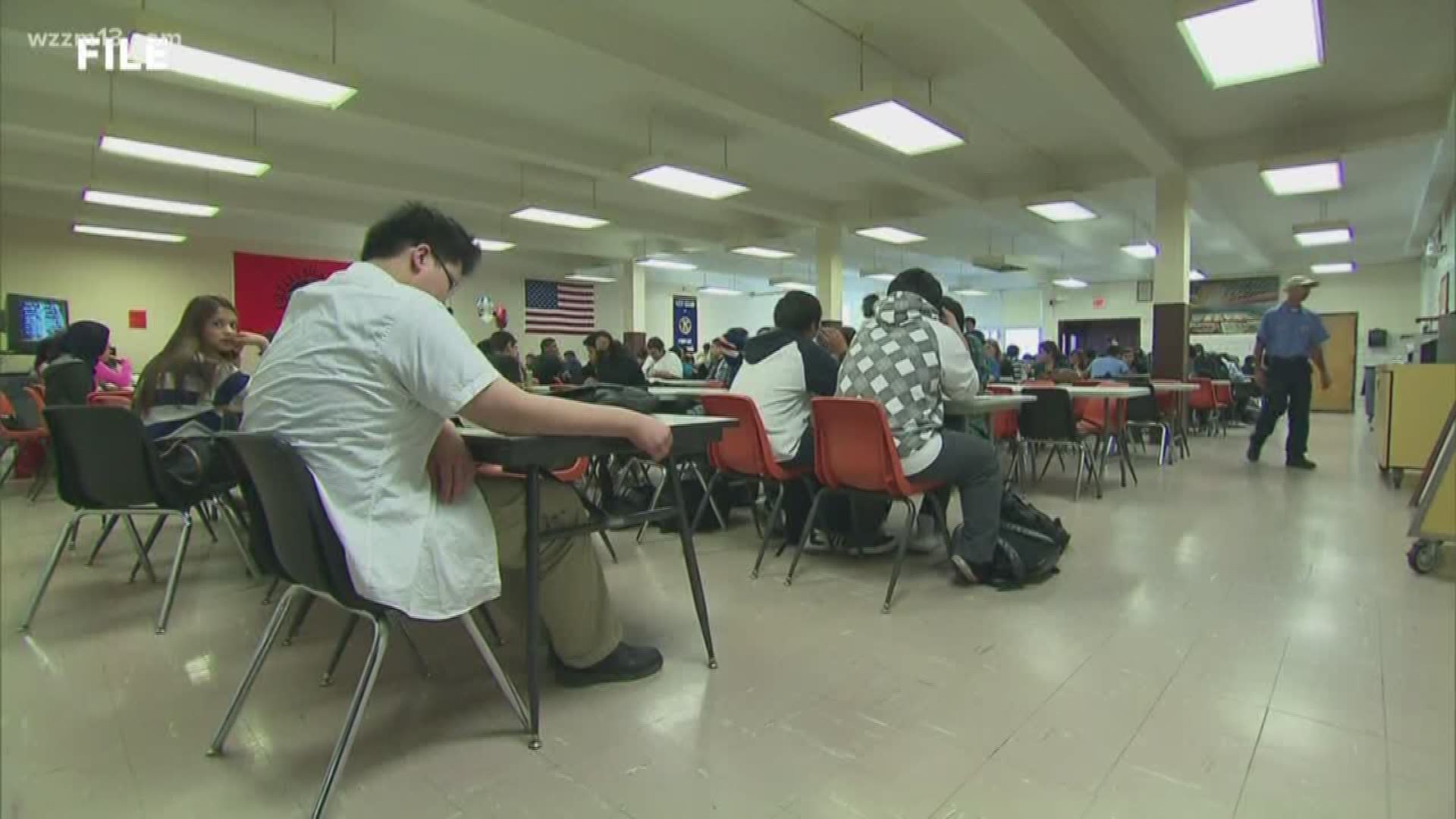Michigan would shift income tax revenue away from the School Aid Fund toward road repairs and environmental cleanups under legislation approved by the Legislature Friday morning during the frenetic lame-duck session.
House Bill 4991 was sent to Gov. Rick Snyder, who is expected to sign it.
The proposed tax shift came under immediate criticism from school groups.
Republicans said the shift of $141 million to $178 million a year away from the School Aid Fund would be offset by increased sales tax revenues generated from online sales, as a result of a recent U.S. Supreme Court ruling.
Democrats countered that even if that is true, schools should have enjoyed some revenue growth from online sales. "We are severely under-funding our education," and the bill takes away a chance to partly fix that that, said Rep. Donna Lasinski, D-Ann Arbor.
While you were sleeping:
A Senate substitute for House Bill 4991, approved by the Senate Thursday in a 26-12 vote and by the House early Friday in a 56-51 vote, would reduce the percentage of income tax revenue that goes to the School Aid Fund.
Both Michigan roads and a new fund proposed by Snyder to pay for environmental cleanups would receive extra money.
The plan would boost road funding by $114 million in 2019 and $143 million in 2020, according to the Senate Fiscal Agency, while putting $69 million a year into the Renew Michigan Fund, which would replace an expiring environmental bond and pay for cleaning up hazardous waste sites, recycling programs and landfill site management.
But School Aid Fund revenues would be reduced by $141 million in 2019, $174 million in 2020, and $178 million in 2021, according to the legislative analysis.
Tapping the School Aid Fund to pay for road repairs is a "direct attack on Michigan’s public education system," and "a clear signal that lawmakers have given up on finding real, long-term solutions to fix Michigan’s roads and are instead trying to force schools across Michigan to foot the bill for them," the Tri-County Alliance for Public Education, representing school superintendents in Wayne, Oakland and Macomb counties, said in a news release.
Mark Greathead, the group's vice-president and superintendent of Woodhaven-Brownstown Schools, said the plan is "absurd," and should be stopped.
“Every superintendent in Michigan has been forced to work within the ‘do more with less’ model of school administration over the last many years, but I certainly doubt any of us expected to be told we now have to pay to fix Michigan’s roads at the expense of our classrooms,” Greathead said in a news release.
Ari Adler, a spokesman for Snyder, said it's really the extra sales tax revenues being generated from online sales that will go toward environmental cleanups, under the plan being worked on with the Legislature.
"This is additional revenue that did not previously exist," Adler said in an email. "That means we are not taking it from the School Aid Fund."
A House amendment approved early Friday would halt the shift if the School Aid Fund dropped below its current level in the next few years.
Snyder had proposed funding the Renew Michigan Fund through increased tipping fee charges at landfill sites, but the Legislature rejected that approach in favor of shifting income tax revenues.
The original version of the bill, sponsored by Rep. Martin Howrylak, R-Troy, was intended for a far different purpose: making sure Michigan residents who received state compensation for wrongful imprisonment didn't suffer an unintended tax penalty as a result.
Howrylak, who voted no, said his bill was "hijacked," and he's concerned by the reduction in the share of income tax revenues going to the School Aid Fund.
"This is a good example of why we shouldn't be doing major legislation on the fly like this," Howrylak told the house."
Assurances that the School Aid Fund will be held harmless are a product of "fuzzy math," he said.
The bill would reduce revenue to the state general fund by $42 million in 2019 and $38 million in 2020, but boost the general fund by $109 million in 2021, according to the analysis.
The bill providing for the tax shift was described as a complement to a huge supplemental spending bill that was expected to be made public Thursday, but was still being finalized Friday morning. The spending bill was expected to detail about $1.2 billion in additional spending for the 2019 fiscal year, of which at least $370 million would come from the state's general fund.
Tax revenues came in higher than expected and lawmakers are also able to tap close to $100 million that was allocated to various departments in 2018, but left unspent. The expected increased sales tax revenue from online sales is also a factor.
A June decision by the U.S. Supreme Court is expected to boost Michigan sales tax revenues by more than $200 million a year. The decision allows the Michigan Department of Treasury to collect sales tax from retailers located outside the state if the retailer exceeds $100,000 in sales or 200 or more transactions in Michigan within the previous calendar year.

